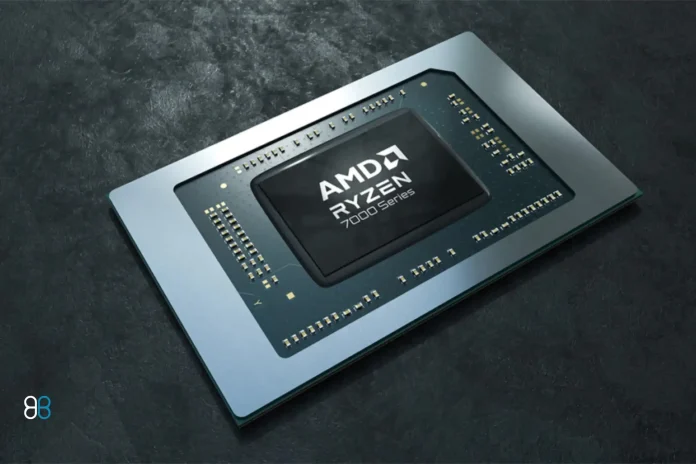In the rapid technological advancements of AI applications, AMD advancing AI as one of the prime driving forces capable of transforming the most influential fields, such as healthcare and finance. But what one often doesn’t see in this near-miraculous turnaround is perhaps the single biggest driver of change — hardware advancement. Here comes AMD, a company that has been secretly working on AI development. With this move, the computer industry might undergo a significant upheaval. It excites me tremendously how AMD is using its advancements in CPU and video card technology to define a new wave of intelligent apps. In this blog, we’ll dive deep into knowing how and why AI is essential for AMD by analyzing the company’s offerings, and its various development processes.
The Role AMD in AI Landscape
Although AMD is a well-known maker of CPUs and GPUs, they are occasionally disregarded in lieu of their commitment to advancing AI. Initially, I was intrigued by AMD’s AI objectives as they might integrate AI with high-end CPUs.I was captivated by the way the organisation integrated AI with computational power when I first learnt about its AI ambitions. Utilising machine learning techniques on its Radeon graphics cards, the company first concentrated on artificial intelligence. AMD anticipated that deep learning and artificial intelligence (AI) will raise the need for trustworthy hardware. As such, they generated AI-ready structures and programs.
Acceleration of AI and Machine Learning
AMD’s machine learning acceleration efforts are among the most intriguing features of their AI developments. It is really very important to have a complete and proper hardware setup to train the machine learning models. By integrating AMD’s GPUs, machine learning performs the tasks in a better way, and with unique features.
Optimizing Data Centers for AI Workloads
As I’ve learnt more about AI, I’ve grown to understand how important data centres are to the operation of AI applications. The rapid expansion of AI-powered services necessitates efficient and effective optimization for data centres. AMD is leading this industry with its EPYC processors, which are designed to meet the demands of the demanding activities associated with AI and machine learning. Because of its many cores, excellent memory bandwidth, and support for large memory capacities, AMD’s EPYC processors are ideal for use in data centres. The fact that AMD EPYC processors can handle up to 64 cores per socket amazed me. This means that enterprises may run many AI applications concurrently without experiencing performance issues.
Enabling AI in Cutting-Edge Computing
I have direct experience with how edge computing may improve AI applications, which has made the notion more popular in recent years. Latency is decreased and real-time decision-making is made possible via edge computing, which moves processing power closer to the data source. Through the development of hardware solutions for edge devices, AMD is actively promoting this trend. AI capabilities are becoming more widely available at the edge thanks to the usage of AMD’s Ryzen and EPYC processors in edge computing equipment. Retail, manufacturing, and healthcare are just a few of the areas that may benefit greatly from these processors since they combine power economy with performance.
Collaborations and Partnerships
AMD may be able to significantly improve its artificial intelligence capabilities through collaborations and agreements with leading industry competitors. I have firsthand knowledge of how teamwork can foster innovation and accelerate the development of artificial intelligence. For instance, in order to develop software stacks that are optimal for the technologies it develops, AMD has partnered with AI software companies. Developers that work together will have access to the tools required to make the most of AMD’s GPU and processing capability for artificial intelligence applications.
Future of AMD Advancing AI
I find myself feeling enthusiastic about the future as I reflect on AMD’s advances in artificial intelligence. The company’s goal is to use research and development to advance artificial intelligence (AI) technology. Given that more and more businesses require AI solutions, AMD is well-positioned to lead this market. I think AMD will continue to innovate in the years to come, focussing on enhancing the usability and efficacy of its hardware solutions for artificial intelligence applications. I also expect more developments in software frameworks and tools that make it easier for developers to leverage AMD technology in AI applications.
Clearly, AMD advancing AI is a major driving force, from bettering machine learning to optimizing edge computing and data centres. AMD is clearing the path for even further advancements in the field of artificial intelligence by forging partnerships and making investments in cutting-edge technology. Hardware plays an equally important role in the rapidly evolving field of artificial intelligence, which should not be disregarded. Innovations and paradigm shifts may result from technology breakthroughs, as AMD’s dedication to AI innovation indicates. Regardless of your role as a developer, entrepreneur, or enthusiast, AMD has created innovations that might impact your work and the future of artificial intelligence (AI).



